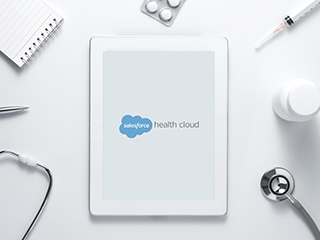
Silverline’s CEO, Gireesh Sonnad, speaks with our Healthcare Practice Director, Matt Gretczko, to get his thoughts about Salesforce Health Cloud; its first industry product built specifically for Healthcare.
Gireesh: Salesforce announced a new Health “Cloud” – how does this differ from other functionality for Healthcare?
Matt: Many people, especially within the Healthcare industry, still believe that Salesforce is solely a CRM – designed to help salespeople sell products, tools, or services. However, the reality is Salesforce is a platform, and one component of being a platform is multiple “Clouds” or “products” that sit on top of the platform that provide baseline functionality and capabilities for certain business activities and processes. Historically, Salesforce had clouds that were more horizontally focused – sales, service, etc. Now, they are merging into the verticals, recently announcing Financial Services Cloud and now Health Cloud.
For Health Cloud, they are now leveraging the power of the platform, but have created a new product that packages a whole host of capabilities, features, and components tailored to the intricacies and use cases of Healthcare. This is how it’s different. Its a full blown product designed to solve some of the most pressing issues in Healthcare while still leveraging the power of the cloud and the other “plumbing” that natively exists.
Whereas in the past much of this functionality would still be possible through customization, Health Cloud gets clients to where they need to be much faster, while also keeping the door open to make additional customizations that align to their business needs.
Gireesh: Interesting, so does health cloud replace other systems?
Matt: That’s a more difficult discussion and candidly, that is where Silverline can offer tremendous value. Our value add in many cases with clients is to work with them to understand their business needs and pain points, then establish a roadmap leveraging the Salesforce platform. That roadmap designates where, how, and if Salesforce makes sense for various activities.
The reality is, there are many legacy systems utilized in the Healthcare industry, whether clinical, revenue cycle management, or incident tracking that Salesforce can replace, but it doesn’t always make sense. An EMR is a good example where Salesforce would not replace the EMR, but would serve as an engagement layer. EMRs, for better or worse, were really built to facilitate billing activities as opposed to make care delivery more streamlined – as such, they are not very user friendly, have limitations, and do not take into consideration the unique coordination with other processes. Salesforce, and Health Cloud, has established a framework to now consume clinical information from these EMRs and expose it in a manner that is much more contextually relevant while allowing caregivers of all types better transparency into key information.
We often see Salesforce replacing legacy systems, but additionally, it helps Healthcare organizations drive engagement, automate business processes, and drive more coordinated workflow. Further, it serves as a framework to launch modular services, applications, and tools that operate in coordination at a process, technological, and clinical level
Gireesh: So, it seems like Health Cloud is a transformational product for Healthcare, why do you think so?
Matt: There are a few components of Health Cloud, and granted its just been released,that I think will be critically important and valuable to the provider space. First off, it provides great reinforcement to the reality that the patients are now the customer. Taking a platform that is historically built around getting a holistic, or 360 degree view of your customer, and adapting that to the new Healthcare customer will provide significant momentum to the trends we are already seeing.
Further, the ability to now take data that is being consumed from multiple external systems, such as EMRs, Medical Devices, and Wearables and being able to seamlessly display that information in a contextually relevant, and actionable manner, is extremely exciting. Seeing a patient profile or timeline of activities related to that patient care offers up a whole new level of engagement and care management.
Additionally, capabilities to get a visual representation of the various relationships a patient has is now only important to delivering higher levels of care, but in many instances, have significant impacts on the patient’s ability to remain healthy after their episode of care.
Outside of the fundamental components of Health Cloud, the native capabilities of Salesforce that makes it accessible at any time, via any device will ensure consistent access to information. The utilization of Salesforce communities can establish “portals” that grant greater collaboration between caregivers, enhanced engagement by patients, and more streamlined interactions with partners and other vendors.
This is a really exciting time for Salesforce, the Healthcare Industry, and our Healthcare Practice that is extremely focused on finding innovative and transformative ways to improve the delivery of Healthcare.
Gireesh: How does this change Silverline’s approach to solving issues for clients?
Matt: First off, it provides a new tool within our own suite of solutions and capabilities to meet the needs of our customers. Even more importantly, for most provider clients we normally have to build out the base or foundational layer in order to facilitate the necessary capabilities. In this instance, with Health Cloud, we no longer need to spend as much effort on items like the objects and data model, and instead can more quickly and easily innovate with our customers to meet their unique business needs at a process and functional level.
Further, given that Silverline is one of the partners initially identified to implement Health Cloud for clients, I believe it positions us to continue to become the go to partner for Healthcare clients.
For more information on Health Cloud, visit Salesforce’s Health Cloud website, and view the demo, or ebook.




